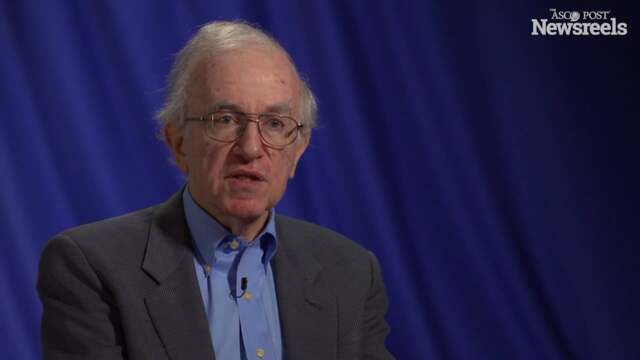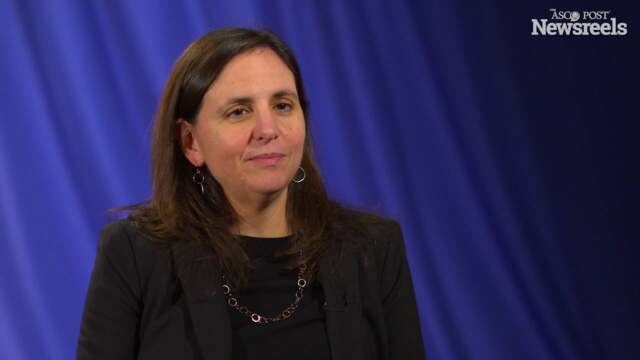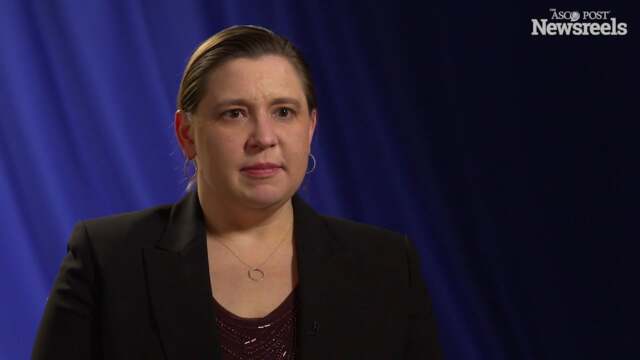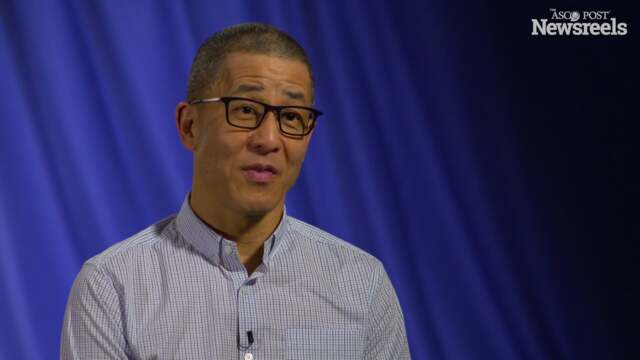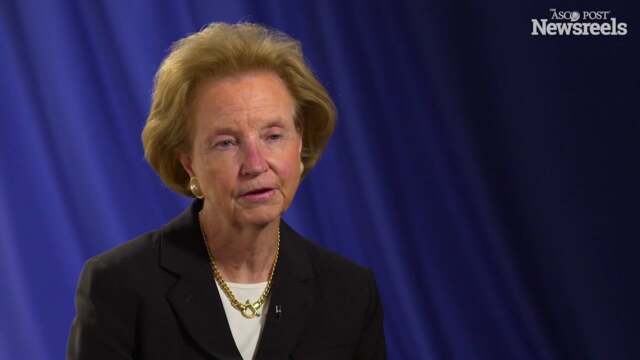Amelie Harle, MD, on Aprepitant for Cough in Lung Cancer
2015 Palliative Care in Oncology Symposium
Amelie Harle, MD, of the Christie NHS Foundation Trust, discusses a clinical trial––the first of its kind—designed to assess the efficacy of an antitussive in patients with lung cancer (Abstract 2).
Lawrence H. Einhorn, MD
Lawrence H. Einhorn, MD, of Indiana University Simon Cancer Center, discusses the ways in which a dedicated palliative radiation consult service can improve the quality of palliative cancer care (Abstract 110).
Jennifer S. Temel, MD
As Steering Committee Chair of this year’s symposium, Jennifer S. Temel, MD, of Massachusetts General Hospital, discusses the goals and highlights of the meeting.
Kathleen Elizabeth Bickel, MD, MPhil
Kathleen Elizabeth Bickel, MD, MPhil, of the White River Junction VA Medical Center, discusses the ASCO/AAHPM Guidance Statement, which will help oncology providers enhance their delivery of palliative care (Abstract 108).
Anthony L. Back, MD
Anthony L. Back, MD, of Seattle Cancer Care Alliance, summarizes a general session on best practices and novel tools for enhancing communication between patients and oncology providers (Abstracts 8,9, 39).
Kathleen Foley, MD
Kathleen Foley, MD, of Memorial Sloan Kettering Cancer Center, discusses the challenges of integrating palliative care in areas without sufficient resources or health-care infrastructure.
